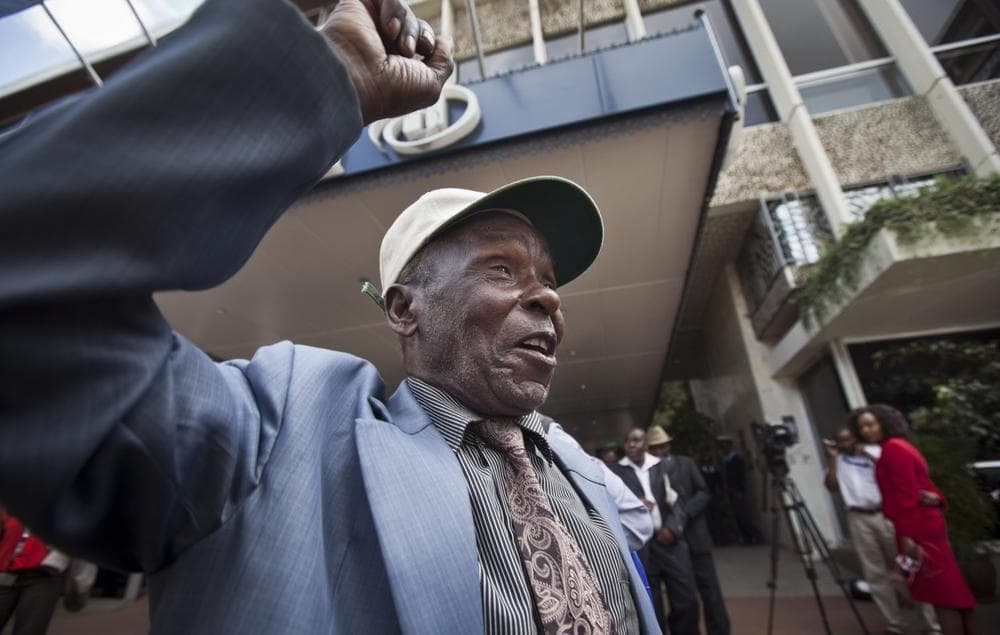Advertisement
Britain To Compensate Victims Of Colonial Torture In Kenya
Resume
In a historic first, the British government has acknowledged that its colonial administration tortured and abused Kenyans during the Mau Mau uprising.
It's a case that has changed the way historians think of the British empire.
In 2009, four elderly Kenyans sued the British government for the torture and abuse they suffered at the hands of British colonial authorities during the Mau Mau insurgency in Kenya, which challenged British rule in the 1950s.
"It's just a moment of utter vindication for the survivors of these camps."
Caroline Elkins
Britain long denied any responsibility for what the Kenyans might have suffered, but after a series of setbacks in London courts, the British government changed course last week, saying it regrets the abuse and offering compensation of about $4,100 for each of the surviving 5,228 victims.
Without the acknowledgement and settlement, the government risked a major defeat in the long-running court case.
Over the course of the legal proceedings, the government had to reveal a large cache of documents from the colonial era which provided evidence for the Kenyans' claims, showing that the torture and other human rights abuses were systematic and conducted with the knowledge of high officials in Britain.
Those documents show that colonial officials knew that prisoners in Kenyan detainment camps were raped, beaten, whipped and subjected to summary executions. The victims included children.
Several white officials who were accused of "roasting detainees alive" were given amnesty from prosecution.

One of the documents was a memo from Kenya's then attorney general, Eric Griffith-Jones, who reported that what was happening in British detainment camps in Kenya was "distressingly reminiscent of conditions in Nazi Germany or Communist Russia."
He pressed upon then governor Evelyn Baring the need for complete secrecy, saying "If we are going to sin," he wrote, "we must sin quietly."
Harvard historian Caroline Elkins served as an expert witness for the plaintiffs.
She first documented British colonial abuses in her thesis. When it was published, Elkins was vilified by British officials and some historians.
The evidence uncovered during the trial has supported her research.
"It's just a moment of utter vindication for the survivors of these camps, who for so long were denied the legitimacy that they were actually tortured and had horrific crimes perpetrated against them by the British," Elkins told Here & Now's Robin Young. "It was simply overwhelming. Some wept, others danced and sang, and still others were utterly paralyzed by the enormity of the moment. I've never seen such a range of emotion in one room."
Previous Here & Now interviews with Caroline Elkins:
Guest:
- Caroline Elkins, professor of history at Harvard University and author of "Imperial Reckoning: The Untold Story of Britain's Gulag In Kenya."
This segment aired on June 11, 2013.